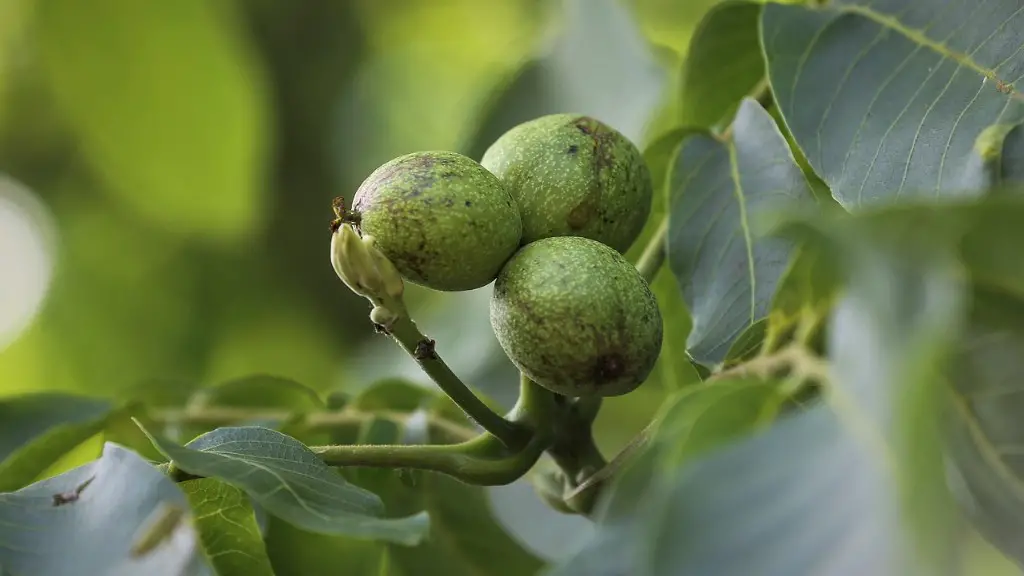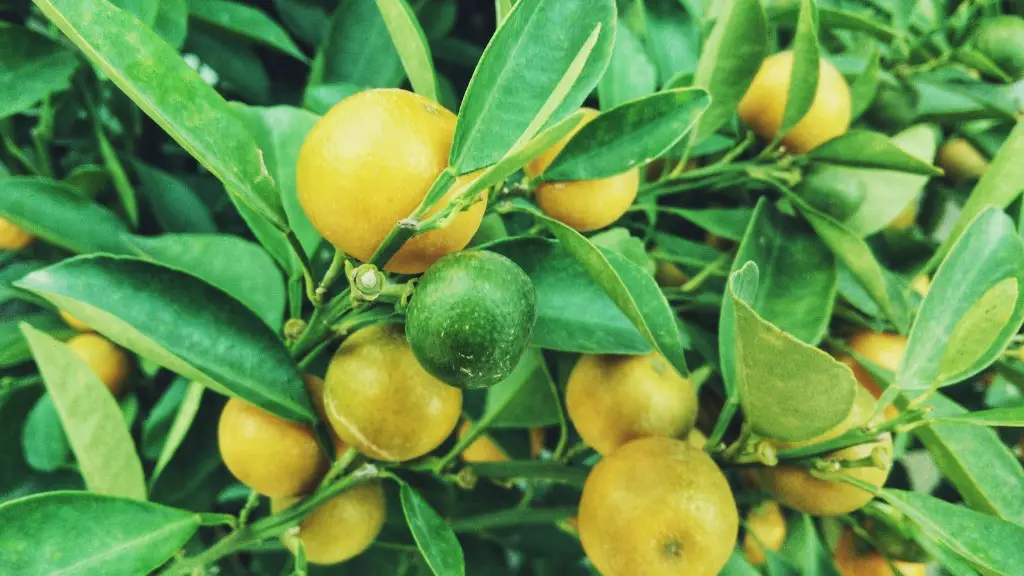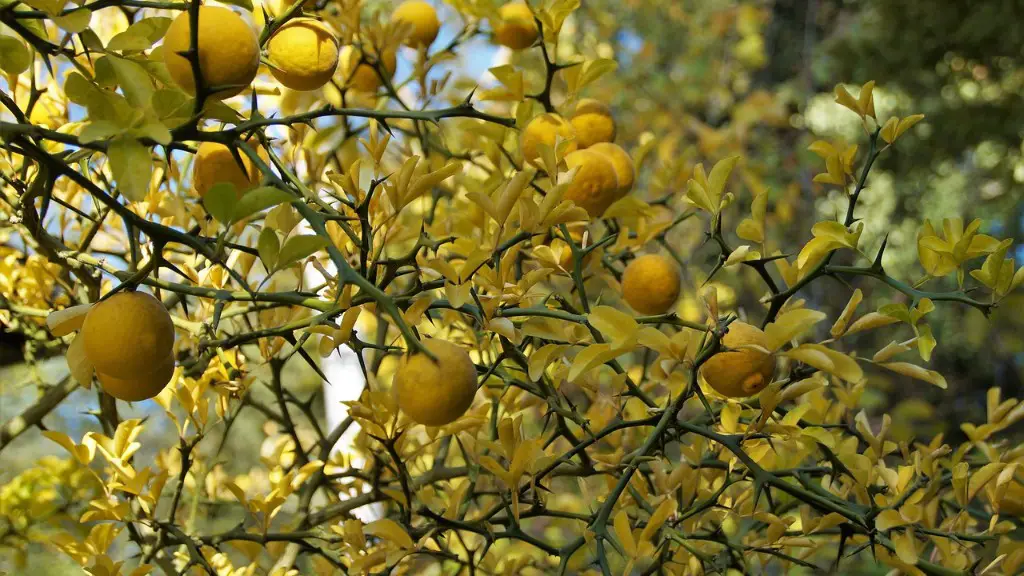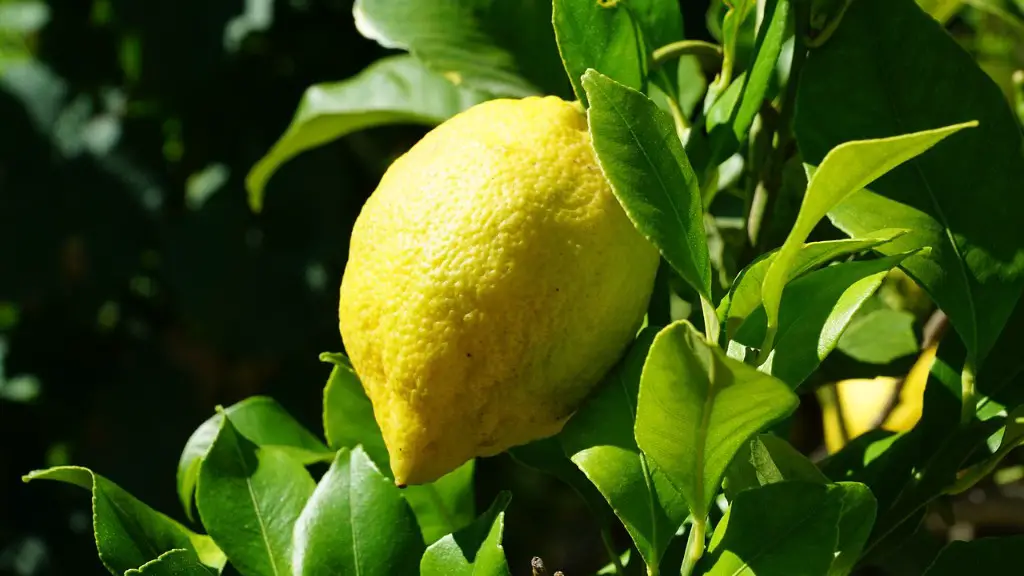When you see the phrase “may contain tree nuts” on a food label, it means that the food was manufactured in a facility that also processes tree nuts. While the food itself may not contain any tree nuts, there is a chance that it could have come into contact with tree nuts during production.
May contain tree nuts means that the product may have come into contact with tree nuts during the manufacturing process.
Is may contain nuts safe?
If a product contains a “may contain” warning, it means that it could contain traces of a harmful allergen. Avoid eating these products, as they could be life-threatening.
Tree nuts and peanuts are both common ingredients in many recipes and can be used in a variety of ways. While they may have some similarities, there are also some key differences between these two types of nuts.
Tree nuts, as the name suggests, grow on trees. This includes popular nuts such as almonds, Brazil nuts, cashews, hazelnuts, pecans, pistachios and walnuts. Peanuts, on the other hand, grow underground and are actually considered legumes.
When it comes to taste and texture, tree nuts tend to be richer and more flavorful than peanuts. They also tend to be more expensive due to the difficulty of harvesting them.
If you have a nut allergy, it is important to know that tree nuts and peanuts are not the same and can cause different reactions. Peanut allergies are actually more common than tree nut allergies, but both can be serious. If you are allergic to one type of nut, it is best to avoid both.
What does may contain other tree nuts mean
This statement is used by manufacturers to indicate that products may be contaminated with peanuts or other nuts through processing and packaging.
This is important for people with peanut allergies to be aware of, as even trace amounts of peanuts can cause a serious reaction. If you have a peanut allergy, always check labels carefully and avoid any products that carry this warning.
If you are vegan and have food allergies, be sure to check the packaging for precautionary allergen labelling. This means the product could include traces of allergens such as milk, eggs, fish, molluscs and crustaceans, which could pose a risk if you have a food allergy to these.
Can people with nut allergies eat things that say may contain nuts?
The best way to prevent a reaction to peanuts or tree nuts is to avoid them entirely. This means not only not eating them directly, but also avoiding any foods that might contain them as ingredients. The best way to be sure a food is nut-free is to read the label carefully.
Some labels include “may contain (allergen)” statements. This means that the manufacturer has added a precautionary statement to the label in case there may be traces of the allergen present.
What to avoid with tree nut allergy?
Many people are allergic to tree nuts, but did you know that they can be found in many unexpected places? Breakfast cereals, candy, crackers, cookies, and chocolates can all contain tree nuts. Other unexpected sources of tree nuts include energy bars, flavored coffee, frozen desserts, marinade, barbeque sauces, some cold cuts, ice cream, and even alcoholic beverages (flavorings). Tree nuts can also be found in many personal care products, such as lotions, shampoos, and soaps. If you have a tree nut allergy, it is important to be aware of all of the places they may be hiding.
A tree nut allergy is a serious and potentially life-threatening condition. Although it is possible to outgrow a tree nut allergy, it is more likely that the allergy will last a lifetime. If you have a tree nut allergy, it is important to avoid all tree nuts, as even a small amount can trigger a severe reaction.
Is tree nut same as peanut allergy
An allergic reaction to peanuts is caused by a protein found in peanuts that is not found in tree nuts. Therefore, someone who is allergic to peanuts is not automatically allergic to tree nuts.
This is to inform you that all products available at our restaurants may contain or come into contact with peanuts, tree nuts or other allergens. We strongly advise that you take the necessary precautions if you have any allergies. Thank you for your understanding.
How do you get rid of tree nut allergy?
While there is currently no cure for a tree nut allergy, the good news is that oral immunotherapy, which involves consuming increasing doses of an allergen to build up tolerance, is at the experimental stage for tree nuts. This treatment is not without risk, however, and should only be undertaken under the supervision of a qualified medical professional.
Yes, OREO cookies are nut free!
Is may contain nuts safe for school
The statement “may contain traces of peanuts or nuts” means that there is a possibility that the product contains a small amount of these allergens. For people with severe allergies, it is best to avoid such products.
The term ‘may contain nuts’ is a generic term that is used to cover both nuts and peanuts. This is allowed if the risk of contamination is from both foods. There is no need to provide details of specific nuts under this voluntary labelling.
What trees cause allergies in May?
If we have seen a relatively wet winter, more trees, grasses, and weeds will produce and disperse pollen during the year ahead. The trees that cause the most problems January through May are ash, eucalyptus, mulberry, olive, oak, sycamore, and walnut.
If you or someone you know has a peanut allergy, it’s important to be aware of the potential severity of a reaction. Peanuts are the most common food allergens associated with a life-threatening reaction, known as anaphylaxis. Anaphylaxis can occur within minutes of exposure to an allergen and can be fatal. If you or someone you know has a peanut allergy, it’s important to be aware of the potential severity of a reaction and to have a plan in place in case of an emergency.
Can you build up an immunity to nut allergies
According to Dr Hong, introducing minute doses of the troublesome foods at an early age to children diagnosed with food allergies – and administering these foods daily, while under supervision and with guidance from an allergist – are often quite effective in building a tolerance without a severe allergic reaction. This approach is called desensitization and it is becoming more and more common as a way to help children with food allergies.
If you are allergic to tree nuts, you may still be able to eat coconuts. Coconuts are not considered a tree nut by the American College of Allergy, Asthma and Immunology (ACAAI), so they may be safe for you to eat. However, it is still possible to have an allergic reaction to coconuts, so it is always best to speak with your doctor before consuming them.
Final Words
The phrase “may contain tree nuts” is typically found on food labels and indicates that the product may have been manufactured in a facility that also processes tree nuts. While the product itself may not contain any tree nuts, there is a risk of cross-contamination during the manufacturing process. For people with tree nut allergies, it is important to avoid products that carry this warning label.
In conclusion, “may contain tree nuts” means that the product was made in a facility that also processes tree nuts, and that there is a possible risk of cross contamination.




